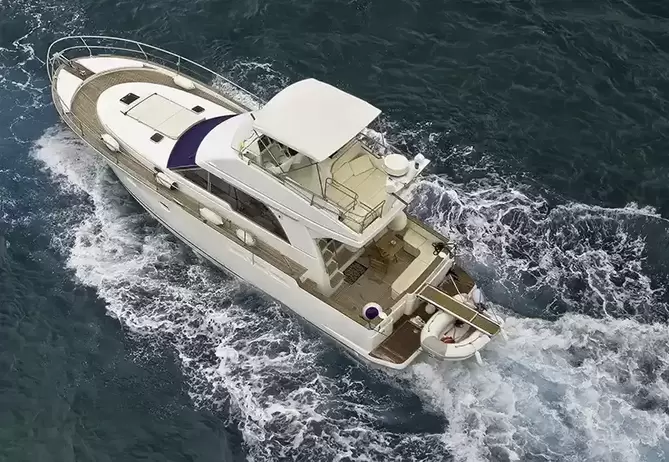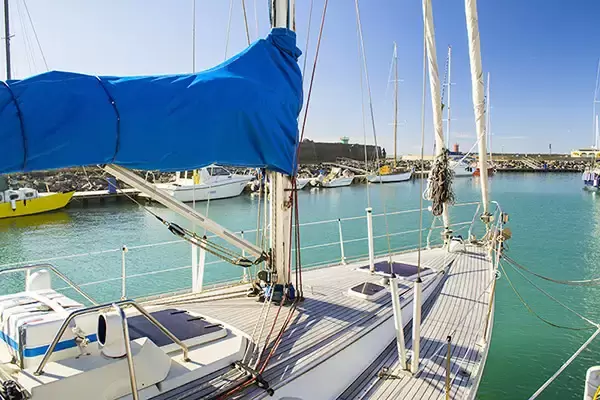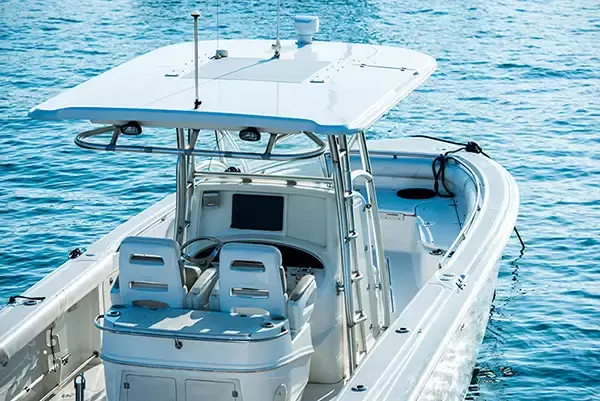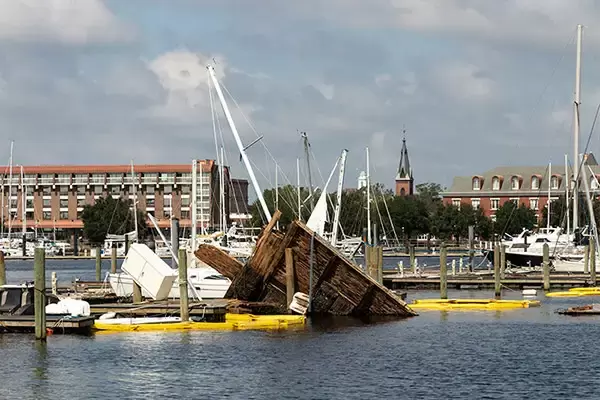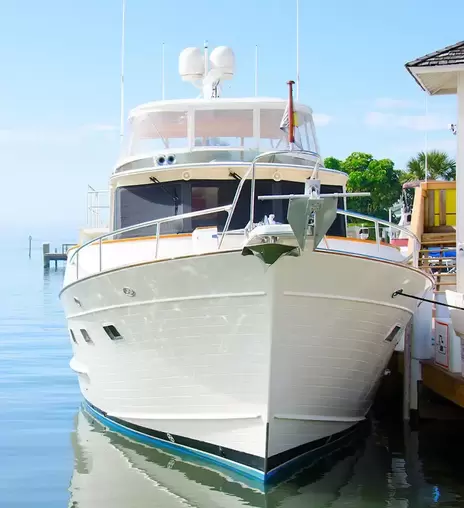Marine Surveyor Providing Yacht & Small Craft Marine Surveys
|
A Marine Survey is a statement of opinion from a professional marine surveyor about the condition and value of a vessel based upon their detailed first-hand inspection. The survey is a technical investigation into the construction and condition of a boat, its components and systems at a particular moment – at the time of survey. The report will include a list of findings and recommendations, the vessel’s estimated Fair Market Value, reports on all federally mandated equipment and numerous photos documenting the vessels construction, systems and condition.
|
At Pilothouse Marine Services, we survey according to Federal Codes (CFR), USCG requirements, American Boat and Yacht Council (ABYC) standards and National Fire Protection Association requirements. As an accredited Marine Surveyor with the Society of Accredited Marine Surveyors I adhere to a strict Code of Conduct, Rules of Practice, and specific report writing standards.
Service Areas of Coverage:
Eastern NC: Beaufort, Morehead City, New Bern, Oriental, Washington, Swansboro, Hampstead, Wilmington, Southport, Manteo and OBX Southeastern VA: Norfolk, Portsmouth, Virginia Beach, Hampton Will travel anywhere in US and Caribbean. |
Types of Surveys
Pre-Purchase SurveyWhen Buying a VesselThe most comprehensive type of survey which is normally done prior to the purchase of a new or used boat. The marine surveyor should be engaged by the prospective buyer as it is his interests that the surveyor will be working for. This survey should be an exhaustive inspection covering every detail affecting the boat’s condition and safety including a thorough evaluation of all onboard systems, structural integrity of all components, the extent of existing problems, suggestions for upgrades and needed repairs. The vessel is best inspected both in and out of the water and underway for a trial run. The Pre-Purchase Survey also provides an estimate of the vessel’s Fair Market Value (FMV) to make sure you don’t pay too much, along with an opinion of its condition and replacement cost. If you are purchasing a boat or yacht you should always insure that the purchase agreement and price are contingent upon a satisfactory Marine Survey.
|
Condition & Value SurveyFor Insurance / FinancingThis Survey is often done specifically for insurance purposes when a vessel is acquired and at periodic intervals thereafter to insure a safe risk for coverage. It may also be requested by financial institutions to determine value of a vessel for loan or estate valuation. An insurance C&V survey may be performed with the vessel either afloat or ashore, depending on the insurance carrier’s requirements, and doesn’t necessarily require a sea trial or operational testing of all equipment and systems. For older boats and new policies, insurance underwriters normally require a haul out inspection to inspect the vessels wetted area and underwater machinery. Each insurance company has their own set of requirements as to what age/size vessel needs a survey, and what the survey report should include. The information contained in an insurance C&V survey report is not sufficient to make an informed decision regarding the purchase of the vessel. Many aspects of the Pre-Purchase inspection are covered, but with greater emphasis on potentially hazardous flaws and safety issues. Precise identification of all valuable gear and an opinion of the vessel’s fair market value and insurability are always included.
|
Appraisal SurveysFor Settlements and DonationsAppraisal surveys are used for financing, estate and divorce settlements, and donation of vessels to charities. Professional marine surveyors are recognized by the IRS, courts, banks and insurance companies as boat and yacht appraisers within their area of expertise.
|
Damage SurveyIn the Event of DamageThe purpose of a Marine Damage Survey is to assess the extent of the damage sustained by the hull, rig, systems or elsewhere on the vessel. The report presents information on the probable causes of the damage, recommendations on repairs, and validates repair estimates for such work. Surveyors are typically hired by insurance companies to investigate claims. Occasionally, a marine surveyor is hired by the boat owner directly to investigate out of the ordinary degradation or damage. We work closely with tow boat and salvage operators when the need arises, and often work with repair shops and boatyards to determine the cost of repairs.
|
Walk-Through SurveyPreliminary SurveyYou have seen all the broker / owner images and read their inventory list. But you need a set of 3rd party "eyes" on the yacht before committing to proceed to a formal survey.
If you are considering the purchase of a vessel but are a substantial distance away, do not have the time to travel to see each vessel opportunity, or are narrowing down your list to the top few - we can perform a Walk-through of a prospective boat/s to help you decide whether it is worthy of investing in the cost of a full Marine Survey. You will get a limited report, numerous photographs or video, and our initial findings / recommendations. Drone videos are also available within the US - subject to location and FAA restrictions. Available to travel to any location. |
Survey Guidelines
- The Code of Federal Regulations (CFR)
- American Boat and Yacht Council (ABYC®) standards and recommended practices
- National Fire Protection Association (NFPA©) 'Fire Protection Standard for Pleasure and Commercial Motor Craft'
- Value determinations by BUC® Value, Soldboats.com, ABOS, and Power Boat Guide
- Society of Accredited Marine Surveyors (SAMS®) code of ethics and rules of practice
- Boat builder and equipment manufacturers documentation
There are guidelines used in the survey that help with many of the judgment calls; I am not just acting on my now opinions. First and foremost is the Code of Federal Regulations (CFRs), often referred to as “Coast Guard regulations.” These cover minimal requirements for safety equipment, navigation lights, sanitation, engine, fuel and electrical systems on gasoline-powered and diesel-powered boats.
Close behind the CFRs are the American Boat and Yacht Council (ABYC) Standards, which are “recommendations” rather than regulations, but can carry significant weight if an accident or failure ends up in court. The standards are extensive to say the least and they cover just about everything on a boat except the basic design and construction. Fortunately, since the standards are so complete, many of the sections will not apply to one individual boat or another. But most systems I see on a boat will have some relevant recommendations from ABYC. Additional standards that I cite come from the National Fire Protection Agency (NFPA) Standard 302 'Fire Protection Standard for Pleasure and Commercial Motor Craft'.
Are there still judgment calls? Certainly. The standards can’t help evaluate the significance of elevated moisture readings in a deck, or the level of wear in belts or hoses. And the toughest calls arise when we are faced with a system on an older model boat that doesn’t meet standards for boats built today. Is it wrong? Is it inherently dangerous? The answers almost always seem to start with, “It all depends...”
-
What To Expect
-
Survey Report
-
The Process
-
Checklists / Contract
-
Rate Card
<
>
|
When you contract with Pilothouse Marine Services, LLC for any of your survey needs you can expect the following:
|
Survey Report: a detailed, referenced, photo-documented, prioritized report in PDF formatThe written survey report is the work product of the physical inspection and will include specific content, finding, and recommendations.
|
Survey Report Contents
- Vessel Data: The report will contain accurate vessel information to positively identify the subject vessel.
- Purpose: The report will contain details about the survey inspection and the parties involved.
- Identification: The report will include identification and / or serial numbers of the vessel and the vessel's major components if the are accessible and readable.
- Through Hull Fittings: The report will include information on the type and condition of "below the waterline or below the maximum heeled waterline" through hull fittings.
- Systems: Each system will be sufficiently detailed in your report. Other independent inspections or surveys conducted in conjunction with the survey will be listed (engine, rigging, electrical, etc).
- Findings: The report will contain the findings, remarks, and recommendations I have concerning:
- Systems and/or equipment that fail to comply with applicable regulations or statutes in effect at time of survey
- Non-regulatory or recommended standards deficiencies (ABYC, NFPA, ISO, ABS, etc.)
- Equipment I feel should be added or upgraded for safe and/or convenient operation of the vessel on a stated or intended use.
- Photos: I take hundreds of high quality photos during the survey. The report will include photos that clearly document the vessel equipment and systems and also those photos which show deviation to the standards or norm, damage to the vessel and/or unique or expensive equipment incongruent to the vessel.
- Safety Equipment: The report will address Required or Recommended Safety Equipment.
- Summary: The report will include a summary which includes my opinions as to the vessel's maintenance, evidence of previous damage or submersion, and/or quality of repairs.
- Valuation: The report will contain a Current Market Value or Fair Market Value (FMV) and an Estimated Replacement Value for the vessel. I will include a statement of the method used and sufficient information showing the sources of the information used to develop my opinion of the value of the vessel.
Please note that due to Confidentiality policy - I do not post sample surveys without client written and express permission. Please email me and I will send you one or more appropriate surveys for you to review.
The following steps are typical for most surveys. Jump to the step most appropriate to your needs.
|

